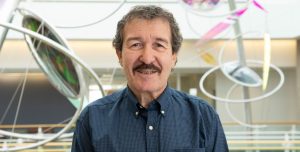Inflammation and Inhibiting ATP Receptors
Gary A. Weisman Lab
Research Interests
The Weisman laboratory studies the initiation of chronic inflammatory disorders such as autoimmune and cardiovascular diseases and cancer, and they have found that blocking cell receptors that recognize the release of the molecule ATP from damaged cells prevents chronic inflammation which preserves tissue function. In mouse models of autoimmune Sjogren’s disease, they have demonstrated that inhibiting these ATP receptors prevents chronic immune cell activation in salivary and lacrimal gland to enhance saliva and tear secretion, respectively. Recently, they demonstrated that blocking the ATP receptors also retards tumor growth in mice, and they are now testing whether these approaches will prevent these chronic disorders in humans.
ABOUT THE LAB
Nucleotide receptors (P2 receptors) are present in nearly all cells and tissues where they mediate diverse functions including the regulation of platelet aggregation, muscle contraction, neurotransmission, insulin secretion, epithelial ion transport, wound healing and cell growth. The Weisman lab has isolated the first human P2 receptor gene and expressed it in mammalian cell lines that normally lack this receptor. These expression systems have enabled them to identify and purify the P2 receptor protein, and their research is directed towards investigating structural features of the receptor that affect its functions. They have cloned or obtained genes for 11 different P2 receptor subtypes belonging to 2 different receptor superfamilies and investigated the mechanisms of receptor activation, desensitization, and signal transduction in a variety of tissues in relation to normal physiological functions and disease.
The lab has undertaken efforts to determine the molecular mechanisms whereby activation of P2 receptors can be employed for the treatment of human disease. Studies have:
- Determined the intracellular pathways that enable P2 receptors to promote chloride secretion in cystic fibrosis (CF) epithelium to effectively bypass the genetic defect in chloride transport that underlies CF.
- Investigated the integrin-like properties of P2 receptors in the cardiovascular system in relation to the effects of extracellular nucleotides on platelet aggregation, vasorelaxation and contraction, atherogenesis and inflammatory responses mediated by monocyte adherence to endothelium, responses that are associated with the early stages of atherosclerosis and diabetes.
- Evaluated the role of P2 receptors in neuronal apoptosis and reactive astrogliosis associated with Alzheimer’s and other neurodegenerative diseases.
- Determined the role of nucleotide receptors in salivary gland inflammation and regeneration to design better treatments for autoimmune Sjogren’s disease.
- Identified the molecular mechanisms whereby blocking P2 receptors prevent tumor formation. Their laboratory possesses the relevant molecular reagents and cell and animal systems needed to progress this research and participating students gain experience in a variety of techniques in molecular and cell biology and translational biochemistry.
LAB MEMBERS
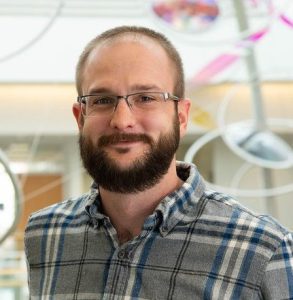
Lucas Woods
Lab Manager - Weisman Lab
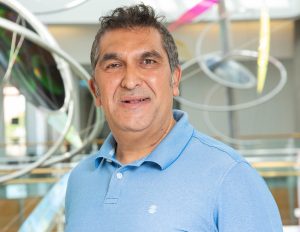
Shrikesh (Rick) Sachdev
Research Scientist/Specialist - Weisman Lab

Ryan Hutchins
Research Scientist/Specialist - Weisman Lab
emailryan.hutchins
place547 Bond LSC

Research Topics
-
Autoimmune disease mechanisms
-
Cancer immunotherapy
-
Chronic inflammatory diseases and immune responses
-
Drug delivery and therapeutic development
-
Genomic tools and systems biology
-
Immunotherapies and immune system regulation
-
Multi-omics and bioinformatics tools
-
Phosphoproteomics and protein kinase studies
-
Single-cell genomics
-
Autoimmune disease mechanisms
-
Cancer immunotherapy
-
Chronic inflammatory diseases and immune responses
-
Drug delivery and therapeutic development
-
Genomic tools and systems biology
-
Immunotherapies and immune system regulation
-
Multi-omics and bioinformatics tools
-
Phosphoproteomics and protein kinase studies
-
Single-cell genomics
In the news
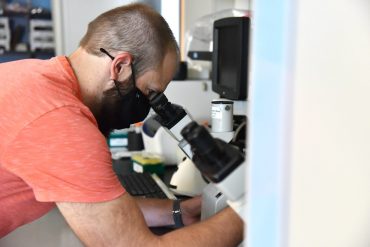
Sep. 25, 2020
Beyond the Vaccine
Lucas Woods from the Weisman lab watches lung cancer cells and oral epithelial cells grow. | photo by Lauren Hines, Bond LSC By Lauren Hines | Bond LSC Vaccine development remains a central goal to get the current COVID-19 pandemic under control. While vaccines are highly vital in the fight against the current pandemic, what if scientists could prevent the virus from entering cells altogether? Researchers at Bond Life Sciences Center are working to do just that and, so far, they’re the only ones at Mizzou on the case. For the Gary Weisman lab, that starts…
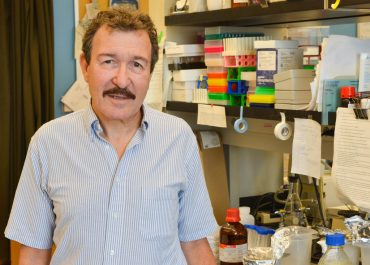
Aug. 4, 2016
Standing out through saliva
Bond LSC scientist internationally recognized for work on salivary glands and autoimmune disorders By Phillip Sitter | Bond LSC You might not think too highly of spit, but you would quickly regret not having any. People with Sjögren’s syndrome suffer chronic dry mouth and eyes from an overzealous immune system that attacks salivary and tear ducts, causing serious health issues. Gary Weisman’s research might hold the key to understanding and managing this immune response, leading to effective treatment or even prevention of this ailment. For this, the International Association of Dental Research, or IADR, awarded him the 2016 Distinguished Scientist Award…
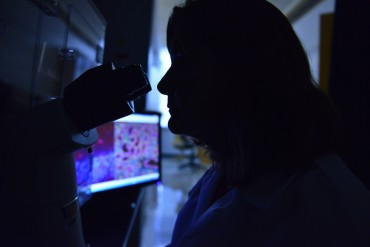
May 12, 2015
The Curious Case of Inflammation: One Lab’s Mission to Put the Pieces Together
Gary Weisman has been investigating one criminal for the past 30 years. And he’s certain there’s a way to prevent negative effects of the unsolved case of inflammation.
